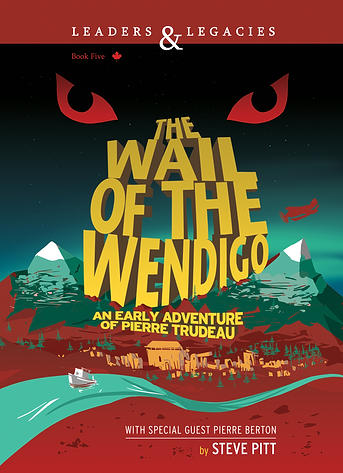(Continuing my series of notes on books I have been neglecting to get to. And this one I actually have read.)
During the 150th anniversary of confederation 2017, a group of Toronto historical societies got together to commission public lectures on each of the Toronto area Fathers of Confederation. (I know. Times have changed, haven't they?) I was asked to do the one on William McDougall. Which I did, and it was well received, but there were limits to what I could present in a brief talk.
McDougall proved fascinating, however, a real piece of work. I was struck by how little had been written about him. Even his moment of maximum notoriety in 1869, when he tried to become Lieutenant Governor of Red River and was sent packing by Louis Riel and the Red River Council, has not produced a lot of in-depth examination of his career. An in-depth biography? Nottachance.
(Once again is confirmed the maxim that there is no subject in Canadian history about which the statement "Too little has been written about X" is likely to be false. Almost any Father of Confederation -- but one -- might be called a Forgotten Father, n'est-ce pas?)
Anyway, I recently learned that there is a novel about William McDougall: Wandering Willie: The Memoirs of William McDougall, 1822-1905: Canada's Forgotten Father of Confederation. It is not a hoax being passed off as the real thing. Daniel Livermore the author is upfront about having created a fictional memoir. He has done a lot of research, too. The novel includes a lengthy bibliography, probably the most detailed I've ever seen on McDougall, plus detailed references to archival collections of McDougall papers, which include the draft of a start to an actual McDougall memoir. Daniel Livermore is a Ph.D in history and a retiree from the Canadian foreign service.
Livermore reports in his introduction that he wrote a novel in order to explore "the shadowy spaces of McDougall's career" and his mode of thinking, and that in other respects the book is history and biography. I have to admit that, while I admire the effort, I rather wish that since he chose the novel form, he had made it more of a novel. McDougall, it seems to me, had massive blind confidence in his own intellect and not much respect for anyone else's and did exactly what he wanted throughout his career. He fought with everyone. And made just about everyone annoyed with and distrustful of him.
But in the novel "McDougall" and his author are trying to rehabilitate McDougall, perhaps. So the first person McDougall is constantly trying to show himself reasonable and moderate, not a troublemaker at all, and often giving a version of events around him that sounds rather like history books written long afterwards.
Well, perhaps the real McDougall would also have striven to justify himself if he had actually completed the memoir he started. But a storming, pontificating, egomaniacal McDougall might have been a lot more fun to read. And I wonder if that might not have been truer to his character.
Anyway this is a valiant effort to give the public (willing or not) at least one booklength account of the guy. I wonder how many people will neglect the author's notices and assume it really is the memoir of William McDougall.











